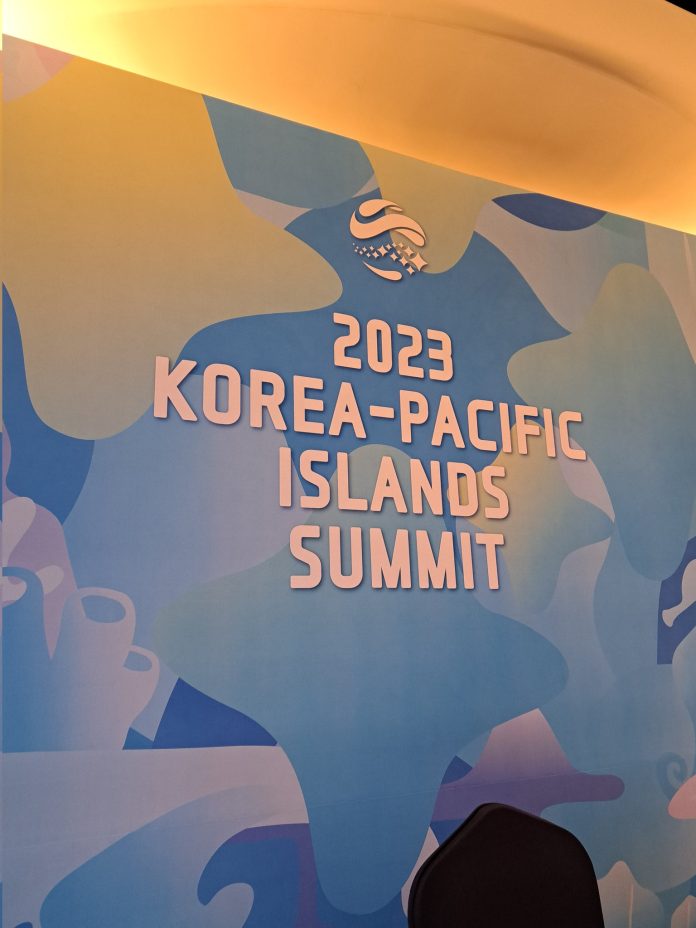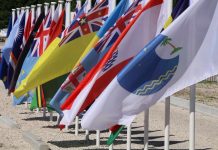By Stephen Howes
Fresh off their meeting with Indian Prime Minister Modi in PNG, Pacific leaders are this coming week gathering in Seoul for the inaugural South Korea-Pacific Islands Forum leaders meeting.
It is not hard to be sceptical about the value of these summits but, that said, they are not going to go away. Normally, they focus on aid. But aid to the Pacific is at a record high and reached sharply diminishing returns a long time ago.
What can South Korea do that is more useful than a promise of more aid projects?
Since 2016, we have been advocating that Korea extend to Pacific countries its temporary low-skill migration programme, the Employment Permit System. The EPS, introduced in 2004, used to admit about 50,000 low-skill workers a year into Korea for three to five years of employment (and now sometimes longer). The scheme has expanded over time, and 110,000 visas are to be issued this year. EPS migrants work in the manufacturing, construction and agriculture sectors.
The source countries for the EPS are Asian, and in 2009 the scheme was opened to Timor-Leste. Timor-Leste has sent some 5,000 workers to Korea under the EPS to date. It is expecting to send another 1,000 this year. That’s a remarkable result given that workers have to pass a Korean language test to be accepted for the scheme.
In 2015, researchers interviewed 30 returned Timorese workers. They found that “with a few exceptions, the former workers spoke positively of their experience and/or the Korea bosses they worked for”. All but two out of the 30 agreed with the statement, “I am happy to tell others to apply to work in Korea”. Nearly all the workers remitted at least US$1,000 a year, and half remitted US$6,000 or more annually.
Timor-Leste won’t actually be at the Korea summit, since it is not a full Pacific Islands Forum member. However, it is a Forum Observer and, given its participation in Australia’s Pacific Australia Labour Mobility scheme, the question naturally arises of why the EPS should not be opened up to Pacific countries.
This idea should appeal to Korea for a number of reasons. For a start, it would have minimal cost. The Korean government might need to kick-start Korean language courses in the region, though in Timor-Leste applicants cover the cost of their language training when they apply for the EPS.
Introducing the EPS into the region would have economic benefits for the Pacific and soft-power benefits for South Korea. The scheme is very popular in Timor-Leste. Our data is a little out of date but, up to 2015, 8,600 attempted the Korean language courses in Timor-Leste, 3,400 passed, and 1,900 actually migrated under the EPS.
Most fundamentally of all, South Korea needs more immigrants. The country has the lowest fertility rate in the world. This is obviously a challenge, but it is also an opportunity. Any country can offer aid to the Pacific; only a handful can offer labour mobility pathways. If South Korea wants to get closer to the Pacific, allowing Pacific Islanders to earn Korean incomes and experience the Korean way of life is the best way to do it.
EPS participation could be offered to all Forum members or to those who express an interest. One sensible option would be to roll it out starting with the larger countries – Papua New Guinea and Solomon Islands are obvious early candidates for joining.
If Korea wants to be taken seriously as a Pacific development partner, it needs to stop looking only to Asia for its labour needs, and open its Employment Permit Scheme to the Pacific Islands region. The upcoming Seoul summit is the perfect opportunity to deliver this outcome.
Stephen Howes is Director of the Development Policy Centre and Professor of Economics at the Crawford School of Public Policy, at The Australian National University.


















